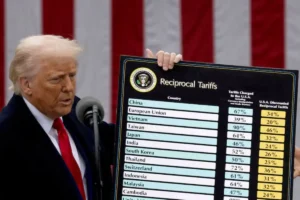
In a high-stakes political play, Texas House Democrats tried to derail a Republican-led redistricting plan until the full Jeffrey Epstein files were made public. By Wednesday, that gamble had failed.
Why it mattered: Democrats hoped the bold move would turn up the heat on the Trump administration over the president’s past association with Epstein. But Republicans quickly shut it down, ruling it had nothing to do with the redistricting bill at hand.
The background: Epstein, a disgraced financier, died by suicide in 2019. Since then, conspiracy theories have swirled over his ties to powerful figures and what they may have known about his sex trafficking operation. Earlier this month, a legal nonprofit sued the Trump administration for allegedly withholding Epstein-related documents, demanding their immediate release.
The bigger picture: The redistricting plan — pushed at President Trump’s urging — was designed to boost Republican odds of holding onto the U.S. House in the upcoming midterms.
The move: Texas Rep. Gene Wu, a Houston Democrat, led over 50 members out of the state in a bid to stall the vote. On Wednesday, he introduced an amendment linking the redistricting process to the release of the Epstein files.
Wu’s stance: “This amendment forces Republicans to choose between their loyalty to Trump and their obligation to expose sexual predators,” Wu said in a statement.
The outcome: The proposal didn’t even make it to debate. Republicans killed it with a procedural ruling. Texas House Speaker Dustin Burrows, a Republican from Lubbock, argued the amendment tied redistricting to an “unrelated” matter.
What the other side says: According to a memo obtained by Axios, Trump’s Justice Department and the FBI found no evidence Epstein blackmailed political figures, kept a “client list,” or was murdered.






